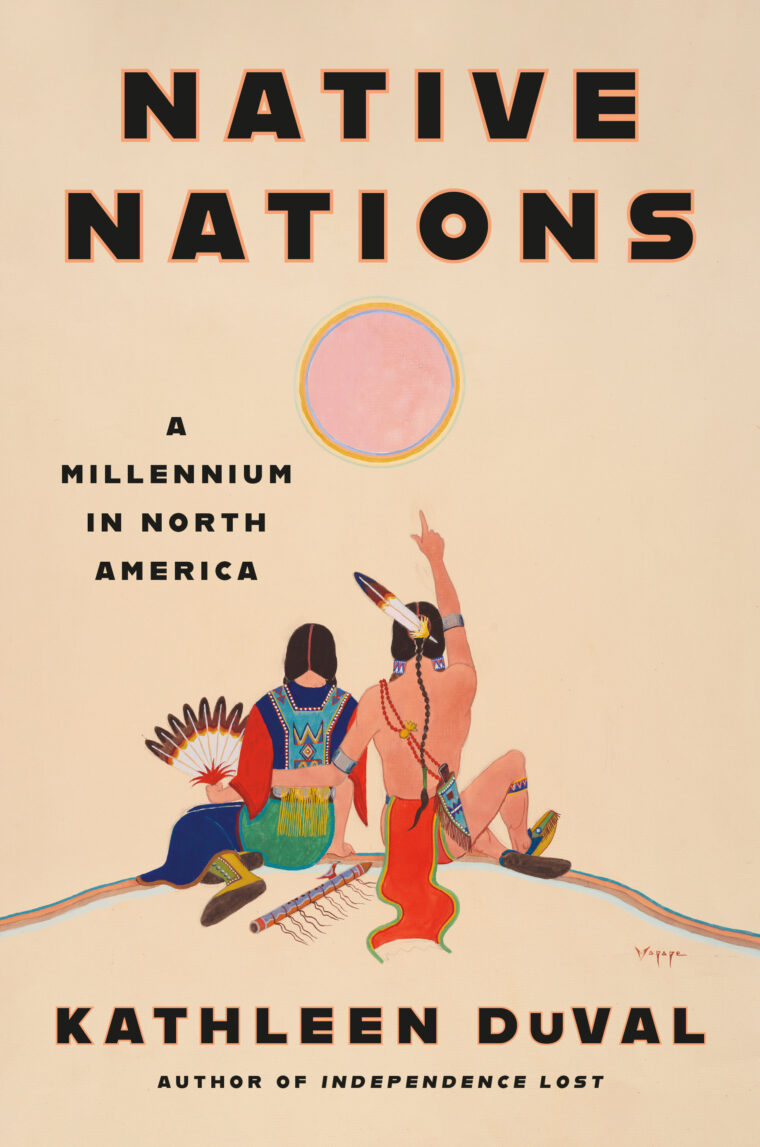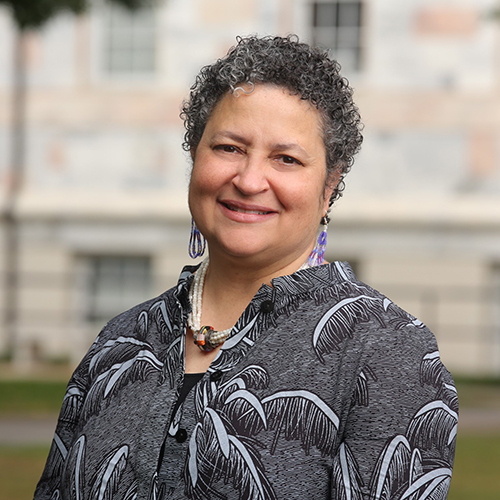Not-yet-members. $12.
Members. $6.
Insiders. Free.
Woodruff Auditorium is located inside McElreath Hall. Doors and cash bar will open at 6pm.
“An essential American history” (The Wall Street Journal) that places the power of Native nations at its center, telling their story from the rise of ancient cities more than a thousand years ago to fights for sovereignty that continue today
“A feat of both scholarship and storytelling.”—Claudio Saunt, author of Unworthy Republic
Long before the colonization of North America, Indigenous Americans built diverse civilizations and adapted to a changing world in ways that reverberated globally. And, as award-winning historian Kathleen DuVal vividly recounts, when Europeans did arrive, no civilization came to a halt because of a few wandering explorers, even when the strangers came well armed.
A millennium ago, North American cities rivaled urban centers around the world in size. Then, following a period of climate change and instability, numerous smaller nations emerged, moving away from rather than toward urbanization. From this urban past, egalitarian government structures, diplomacy, and complex economies spread across North America. So, when Europeans showed up in the sixteenth century, they encountered societies they did not understand—those having developed differently from their own—and whose power they often underestimated.
For centuries afterward, Indigenous people maintained an upper hand and used Europeans in pursuit of their own interests. In Native Nations, we see how Mohawks closely controlled trade with the Dutch—and influenced global markets—and how Quapaws manipulated French colonists. Power dynamics shifted after the American Revolution, but Indigenous people continued to command much of the continent’s land and resources. Shawnee brothers Tecumseh and Tenskwatawa forged new alliances and encouraged a controversial new definition of Native identity to attempt to wall off U.S. ambitions. The Cherokees created institutions to assert their sovereignty on the global stage, and the Kiowas used their power in the west to regulate the passage of white settlers across their territory.
In this important addition to the growing tradition of North American history centered on Indigenous nations, Kathleen DuVal shows how the definitions of power and means of exerting it shifted over time, but the sovereignty and influence of Native peoples remained a constant—and will continue far into the future.

About the Author
Kathleen DuVal is a professor of history at the University of North Carolina at Chapel Hill, where she teaches early American and American Indian history. Her previous work includes Independence Lost, which was a finalist for the George Washington Prize, and The Native Ground: Indians and Colonists in the Heart of the Continent. She is a coauthor of Give Me Liberty! and coeditor of Interpreting a Continent: Voices from Colonial America.
About the Moderator

Malinda Maynor Lowery is a historian and documentary film producer who is a member of the Lumbee Tribe of North Carolina. In July 2021 she joined Emory University as the Cahoon Family Professor of American History, after spending 12 years at UNC-Chapel Hill and 4 years at Harvard University. Her second book, The Lumbee Indians: An American Struggle, was published by UNC Press in 2018. The book is a survey of Lumbee history from the eighteenth century to the present, written for a general audience. Her first book, Lumbee Indians in the Jim Crow South: Race, Identity, and the Making of a Nation (UNC Press, 2010). It won several awards, including Best First Book of 2010 in Native American and Indigenous Studies.
She has written over twenty book chapters or articles, on topics including American Indian migration and identity, school desegregation, federal recognition, religious music, and foodways, and has published essays for popular audiences in places like the New York Times, Oxford American, and Daily Yonder. She has won fellowships and grants from the Mellon Foundation, the National Endowment for the Humanities, the Sundance Institute, the Ford Foundation, and others.
Films she has produced include the Peabody Award-winning A Chef’s Life (PBS, 2013-2018), Somewhere South (PBS, 2020), Road to Race Day (Crackle, 2020), the Emmy-nominated Private Violence (HBO, 2014), In the Light of Reverence (PBS, 2001), and two short films, Real Indian (1996), and Sounds of Faith (1997), both of which premiered at the Sundance Film Festival. Her current projects include essays on the shared history of Black and Indigenous Americans and a media experience on humor and racial stereotypes with the Smithsonian Institution.
The Livingston Lectures are made possible with generous funding from the Livingston Foundation of Atlanta.
Promotional language provided by publisher.